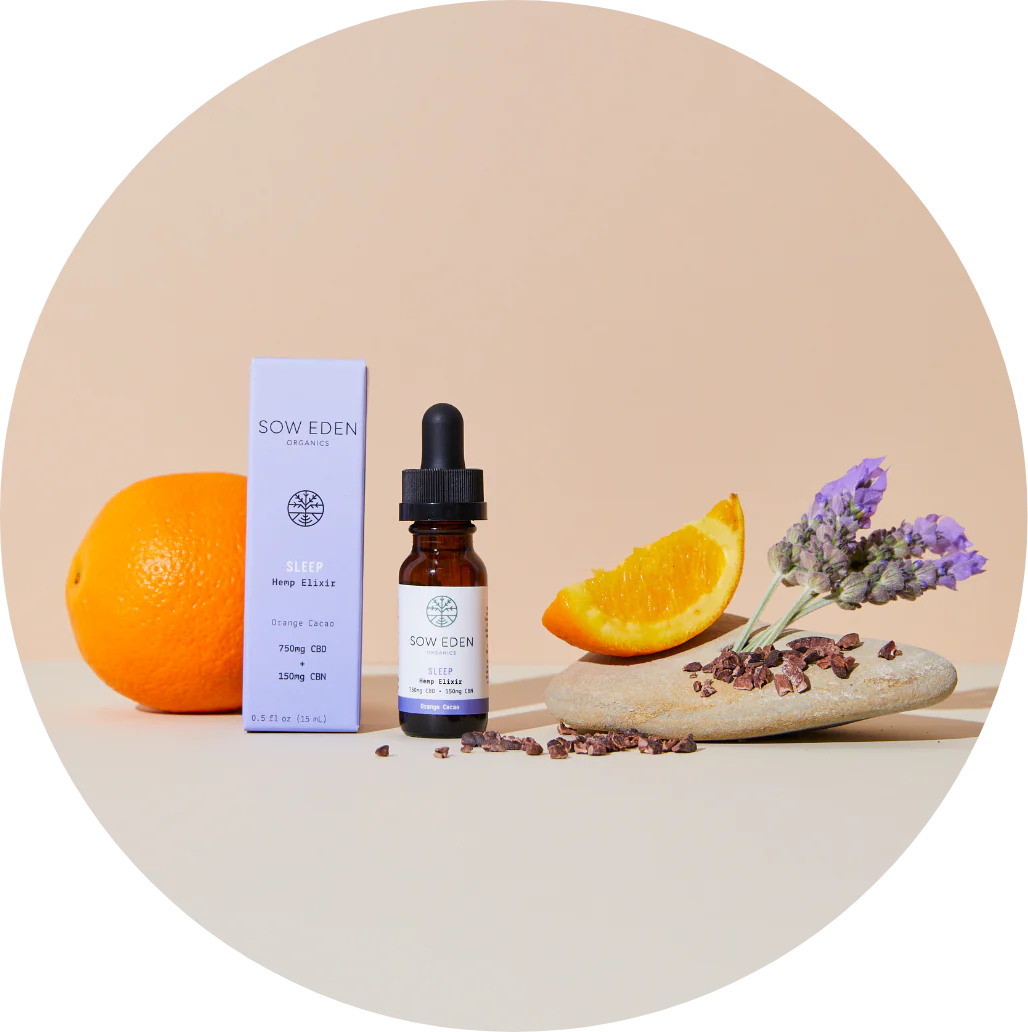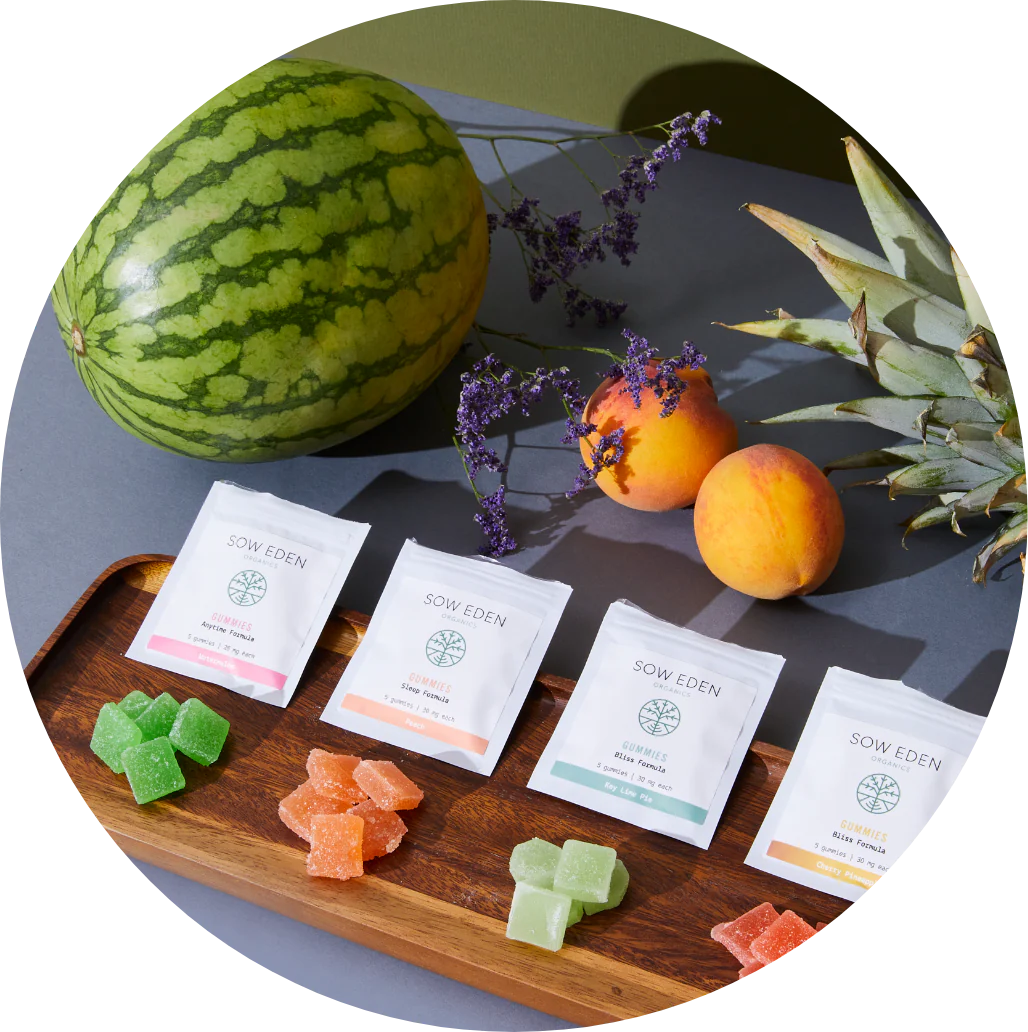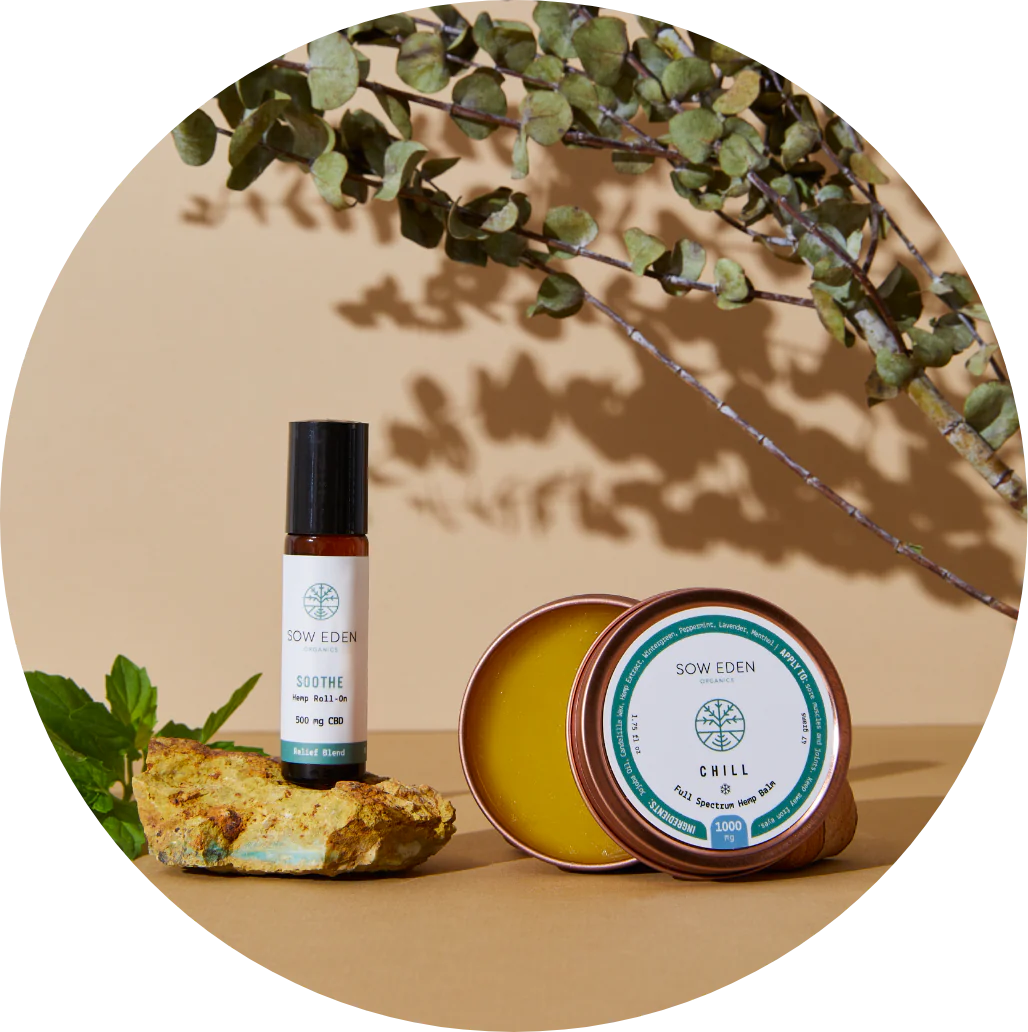Cannabidiol, or CBD for short, is the second most abundant phyto (plant-derived) cannabinoid found in the cannabis / hemp plant. Contrary to what you may have heard or read on the internet, high CBD-hemp is the same exact plant as high CBD cannabis. There is no difference whatsoever. As long as the THC level is below 0.3% by dry weight, high CBD cannabis meets the Federal government’s legal description of “industrial hemp.” CBD is not intoxicating, so CBD does not get the user “high.”
CBD oil is typically extracted from the flowers, stalks, and leaves of the cannabis/hemp plant. Please note that Hemp seed oil and CBD oil are not the same thing. Hemp seeds (usually from a low oil variety of cannabis) contain no CBD. Many unethical companies sell hemp seed oil as CBD oil.
Cannabidiol, or CBD for short, is the second most abundant phyto (plant-derived) cannabinoid found in the cannabis / hemp plant. Contrary to what you may have heard or read on the internet, high CBD-hemp is the same exact plant as high CBD cannabis. There is no difference whatsoever. As long as the THC level is below 0.3% by dry weight, high CBD cannabis meets the Federal government’s legal description of “industrial hemp.” CBD is not intoxicating, so CBD does not get the user “high.”
CBD oil is typically extracted from the flowers, stalks, and leaves of the cannabis/hemp plant. Please note that Hemp seed oil and CBD oil are not the same thing. Hemp seeds (usually from a low oil variety of cannabis) contain no CBD. Many unethical companies sell hemp seed oil as CBD oil.
The term “broad spectrum” refers to a CBD oil that has undergone a secondary process where the THC has been removed from the original “full-spectrum” extract, so there is virtually no chance of testing positive on a drug test. There is also no risk of intoxication.
The term “spectrum” itself refers to the array of other cannabinoids besides CBD naturally found in the plant extract, such as CBG (Cannabigerol), CBC (Cannabichromene), CBDV (Cannabidvarin), THCV (Tetrahydrocannabivarin), and so on. These cannabinoids are usually referred to as “minor cannabinoids,” since they often occur in much smaller concentrations than CBD and THC. The spectrum of plant compounds can also refer to terpenes, the aromatic plant compounds, as well as pigments and bio-flavonoids. Theoretically, the richer the spectrum, the greater the “entourage effect”. The entourage effect is a proposed phenomenon by which cannabis compounds act synergistically to modulate the overall psychoactive effects of the plant.
Unbeknownst to many CBD users, there are many varying qualities and degrees of broad spectrum CBD oils found on the market. The majority of broad spectrum CBD oils are known as distillates. Distillate is a CBD oil that has undergone an extreme level of processing and refinement to improve color and taste (CBD oil is naturally bitter and spicy). Since it is highly processed, CBD distillate is notoriously devoid of many of the minor cannabinoids, terpenes, and bio-flavonoids. We estimate that over 90% of broad spectrum products on the market are made with highly processed broad spectrum distillates. This means that many of the so-called broad spectrum CBD products on the market are closer to CBD isolate products, meaning that there is not much else in the product besides CBD. There are little to no minor cannabinoids, terpenes, pigments, or bio-flavonoids.
WE ARE DIFFERENT. We truly go above and beyond the competition. Our products fall into the category of “Ultra Broad Spectrum”. We achieve ultra broad spectrum cannabinoid profiles by expertly blending multiple CBD extracts for a true whole plant entourage experience. The majority of companies use one CBD oil, and it’s usually distillate. We take the time and put in the extra effort to make our products the best in the industry!
The term “broad spectrum” refers to a CBD oil that has undergone a secondary process where the THC has been removed from the original “full-spectrum” extract, so there is virtually no chance of testing positive on a drug test. There is also no risk of intoxication.
The term “spectrum” itself refers to the array of other cannabinoids besides CBD naturally found in the plant extract, such as CBG (Cannabigerol), CBC (Cannabichromene), CBDV (Cannabidvarin), THCV (Tetrahydrocannabivarin), and so on. These cannabinoids are usually referred to as “minor cannabinoids,” since they often occur in much smaller concentrations than CBD and THC. The spectrum of plant compounds can also refer to terpenes, the aromatic plant compounds, as well as pigments and bio-flavonoids. Theoretically, the richer the spectrum, the greater the “entourage effect”. The entourage effect is a proposed phenomenon by which cannabis compounds act synergistically to modulate the overall psychoactive effects of the plant.
Unbeknownst to many CBD users, there are many varying qualities and degrees of broad spectrum CBD oils found on the market. The majority of broad spectrum CBD oils are known as distillates. Distillate is a CBD oil that has undergone an extreme level of processing and refinement to improve color and taste (CBD oil is naturally bitter and spicy). Since it is highly processed, CBD distillate is notoriously devoid of many of the minor cannabinoids, terpenes, and bio-flavonoids. We estimate that over 90% of broad spectrum products on the market are made with highly processed broad spectrum distillates. This means that many of the so-called broad spectrum CBD products on the market are closer to CBD isolate products, meaning that there is not much else in the product besides CBD. There are little to no minor cannabinoids, terpenes, pigments, or bio-flavonoids.
WE ARE DIFFERENT. We truly go above and beyond the competition. Our products fall into the category of “Ultra Broad Spectrum”. We achieve ultra broad spectrum cannabinoid profiles by expertly blending multiple CBD extracts for a true whole plant entourage experience. The majority of companies use one CBD oil, and it’s usually distillate. We take the time and put in the extra effort to make our products the best in the industry!
All of us were born with a network of cellular receptors throughout our bodies that specifically interact with cannabinoids. This broad network of cellular receptors we are speaking of is called the “endo-cannabinoid system,” the ECS. It may even surprise you to know that our own human bodies produce natural cannabinoids, called endo-cannabinoids, that bind to specific cannabinoid receptors in the body known as CB1 and CB2! Have you ever wondered why you get that head-rush or feel that sense of bliss after a hard workout, the so-called “runners high?” When we exercise vigorously, the body actually produces Anandamide, the body’s natural homologue of THC. But whether cannabinoids come from our own bodies or we get them from botanical sources (phyto-cannabinoids) such as cannabis, cannabinoids help restore balance to the body. Cannabinoid receptors are concentrated in our brain, vital organs, connective tissues, central nervous system, and immune cells. So in essence, we are hard-wired to use cannabis and benefit from it. Some researchers have gone as far as to suggest that an “endo-cannabinoid deficiency” could lie at the root of many modern day issues, especially since the endo-cannabinoid system regulates so many physiological systems throughout the body!
CBD and the other minor cannabinoids interact with the body through various other independent pathways and receptors. For example, CBD activates serotonin receptors and TRPV ion channels, known as “capsaicin” or “vanilloid receptors.” Certain cannabinoids, especially CBDV (Cannabidivarin), interact with an orphan receptor called GPR55, or G-Protein Receptor 55. This specific lipid-receptor has shown to be associated with malignant growths. We are constantly learning new and very exciting things about how CBD and minor cannabinoids work in the body.
All of us were born with a network of cellular receptors throughout our bodies that specifically interact with cannabinoids. This broad network of cellular receptors we are speaking of is called the “endo-cannabinoid system,” the ECS. It may even surprise you to know that our own human bodies produce natural cannabinoids, called endo-cannabinoids, that bind to specific cannabinoid receptors in the body known as CB1 and CB2! Have you ever wondered why you get that head-rush or feel that sense of bliss after a hard workout, the so-called “runners high?” When we exercise vigorously, the body actually produces Anandamide, the body’s natural homologue of THC. But whether cannabinoids come from our own bodies or we get them from botanical sources (phyto-cannabinoids) such as cannabis, cannabinoids help restore balance to the body. Cannabinoid receptors are concentrated in our brain, vital organs, connective tissues, central nervous system, and immune cells. So in essence, we are hard-wired to use cannabis and benefit from it. Some researchers have gone as far as to suggest that an “endo-cannabinoid deficiency” could lie at the root of many modern day issues, especially since the endo-cannabinoid system regulates so many physiological systems throughout the body!
CBD and the other minor cannabinoids interact with the body through various other independent pathways and receptors. For example, CBD activates serotonin receptors and TRPV ion channels, known as “capsaicin” or “vanilloid receptors.” Certain cannabinoids, especially CBDV (Cannabidivarin), interact with an orphan receptor called GPR55, or G-Protein Receptor 55. This specific lipid-receptor has shown to be associated with malignant growths. We are constantly learning new and very exciting things about how CBD and minor cannabinoids work in the body.
The body is truly designed to use cannabinoids! On the other hand, the body wasn’t built to process synthetic, lab-created substances. While pharmaceutical drugs may help with one condition, they often come with numerous unwanted side effects and they can create secondary disease, both physical and mental. In a day and age where we desire instant gratification and quick results, pharmaceuticals have become our go-to for that “quick fix.” There is no doubt that pharmaceuticals have their place and can save lives, but at Sow Eden we believe in a plant-based and natural approach first. CBD and the other entourage of cannabinoids found in hemp extract can help restore balance and wellness to the body. In plants we trust!
The body is truly designed to use cannabinoids! On the other hand, the body wasn’t built to process synthetic, lab-created substances. While pharmaceutical drugs may help with one condition, they often come with numerous unwanted side effects and they can create secondary disease, both physical and mental. In a day and age where we desire instant gratification and quick results, pharmaceuticals have become our go-to for that “quick fix.” There is no doubt that pharmaceuticals have their place and can save lives, but at Sow Eden we believe in a plant-based and natural approach first. CBD and the other entourage of cannabinoids found in hemp extract can help restore balance and wellness to the body. In plants we trust!
We are not medical professionals and we absolutely recommend consulting with a medical professional before taking CBD. These statements have not been evaluated by the Food and Drug Administration. These statements are not intended to diagnose, treat, cure, or prevent any disease.
We are not medical professionals and we absolutely recommend consulting with a medical professional before taking CBD. These statements have not been evaluated by the Food and Drug Administration. These statements are not intended to diagnose, treat, cure, or prevent any disease.


